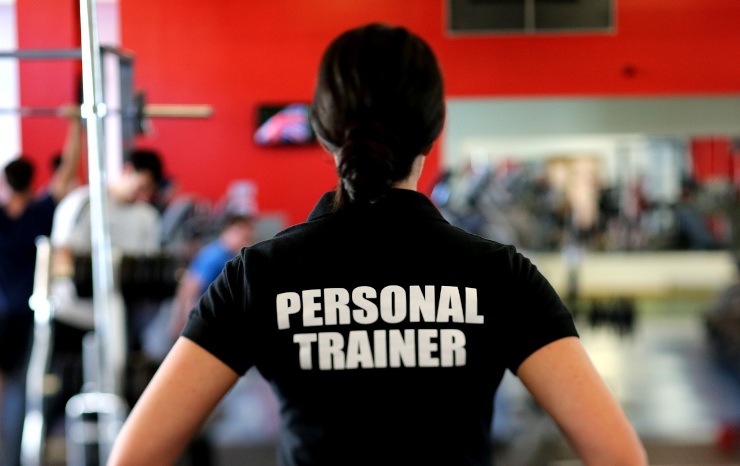We test and review fitness products based on an independent, multi-point methodology. If you use our links to purchase something, we may earn a commission. Read our disclosures.
If you’re a personal trainer, you know that earning one of the best personal training certifications is just the first step, and that continuing education is essential to grow your fitness career and maintain your certification. Most reputable certifications require continuing education credits (CECs) or continuing education units (CEUs), which can be earned by completing educational courses on a wide variety of topics.
Choosing the right course can feel overwhelming, so I’ve chosen eight of the best courses on the market to help you expand your knowledge base and refine your skills. Here at GGR, our testers have earned certifications from a variety of companies, including ACE, NASM, NSCA, USA Weightlifting, and many others, so we know the ins and outs of the personal training industry and the best CEU and CEC courses to choose from.
When choosing continuing education courses, we rated each course with the following methodology:
- Price
- Course length
- Accreditation
- Continuing education requirements
- Prerequisites
- Study options
- Final assessment
Whether you’re looking to work with a specific population and want to learn more to be a better trainer, you want an advanced certification to boost your resume, or you’re simply looking to earn enough CEUs to renew your certification without emptying your bank account, I’ve got a recommendation for you in this guide.
8 Best Continuing Education Courses for Personal Trainers
- Best Continuing Education Course Overall: NSCA Certified Strength and Conditioning Specialist
- Best Business-Focused Continuing Education Course: NASM Business Blueprint
- Best Sports Performance Continuing Education Course: ISSA Performance Enhancement Specialist
- Best Nutrition Continuing Education Course: Precision Nutrition Level 1 Certification
- Best Affordable Continuing Education Course: MASS Research Review
- Best Behavior Change Continuing Education Course: ACE Behavior Change Specialist
- Best Corrective Exercise Continuing Education Course: TBMM Corrective Exercise Specialist
- Best Advanced Continuing Education Course: ACSM Certified Exercise Physiologist
What Does a Personal Trainer Do?
What is a CPT certification you might ask? Personal trainers can have a powerful impact on someone’s health and often work in a variety of settings. When I was working as a full-time personal trainer, I worked in commercial gyms, private training studios, sports performance centers, and even a sports physical therapy clinic, helping clients regain strength after injuries.
Personal trainers can train people who have never exercised before, high school athletes, busy executives who want to lose weight, runners preparing for a race, and everyone in between. They can have a direct impact on the health and wellness of their clients, and because of this, ongoing education and professional development is a mandatory part of nearly every personal training certification on the market, especially if you want to train a specific type of client.
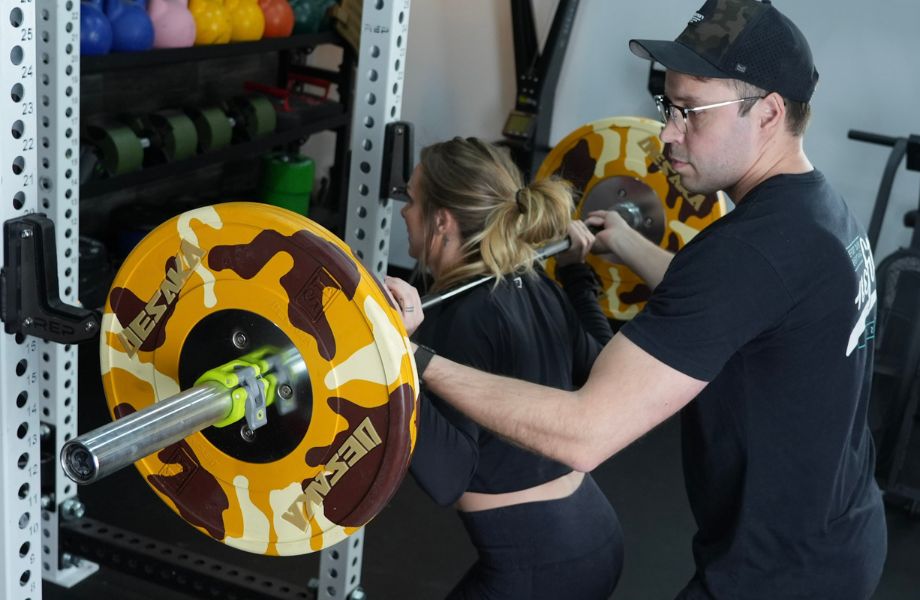
Most personal trainer certifications teach you the fundamentals of training, and continuing education is where you start to study the specific areas you’re interested in. Not to mention, most personal trainer certifications require you to renew your certification every two to three years, and you’ll need to have completed your CEUs before then.
Some organizations, like ACSM, set their educational requirements using CECs, rather than CEUs, but this is just a different way to measure your continuing education hours. Many courses are approved for both CEUs and CECs, so the exact term used doesn’t really matter. Now, on to the best-of list.
Best Continuing Education Course for Personal Trainers Overall: NSCA Certified Strength and Conditioning Specialist
Good for: Anyone who works with athletes or wants to have the gold standard of certifications
Best Overall
NSCA CSCS Certification
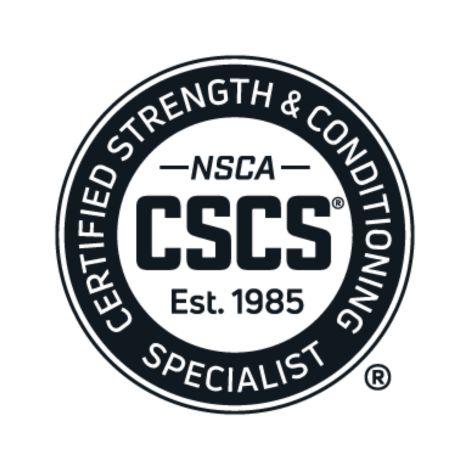
Product Highlights
- Certified Strength and Conditioning Specialist
- Prepares coaches to work with athletes and teams
- Bachelor’s degree required
- CPR/AED certification required
- 220-question exam
- 38% overall pass rate
Pros & Cons
Pros
- Highly recognized certification
- Delivers in-depth knowledge of strength and conditioning
- Multiple-choice question exam
Cons
- Study materials are separate from exam costs
- Exam must be taken within 120 days of registering
- In-person exam only
- Exam pricing starts at $340
Bottom Line
The CSCS program has been the gold-standard in the strength and conditioning community since 1985. The certification qualifies candidates to work with athletes, teams, and other sport-specific scenarios. To sit for the CSCS exam, you must have a bachelor’s degree or higher (or currently be enrolled as a college senior at an accredited institution). The CSCS is certified by the National Strength and Conditioning Association (NSCA).
When it comes to certifications and credentials for health and fitness professionals, the NSCA Certified Strength and Conditioning Specialist (NSCA-CSCS) is widely considered one of the best certifications to earn.
The NSCA, or National Strength and Conditioning Association, is one of the most reputable companies in the fitness certification industry. While most people who take the CSCS plan to work with athletes, any personal trainer can benefit from earning their CSCS, and it’s a great way to boost your resume with a recognizable credential.

If you’re interested in working in the sports performance field, the CSCS is often a minimum requirement, especially if you plan to work at the college or professional level. The CSCS textbook includes content that’s similar to traditional CPT certifications, but you’ll also learn about setting up athletic training facilities, conducting needs analysis for athletes, periodizing a training program throughout an athletic season, and more.
One of the reasons this certification is so highly regarded is that the CSCS exam has a reputation for being very difficult to pass, and you need to have a minimum of a Bachelor’s degree to qualify, although the degree doesn’t need to be related to exercise science.
I passed the CSCS exam the summer after graduating college with a bachelor’s degree in Exercise Science, which included a CSCS prep class using the NSCA textbook during my senior year, and I still found the exam to be quite challenging.
The NSCA gives a range of three weeks to nine months of study time, depending on your current knowledge. The exam registration expires 120 days after purchase, but you pay for the exam separately, so you can take as long as you need to study the materials and wait to register until you feel ready.
We gave the CSCS certification a 4.31/5 rating due to the value, content, and NCCA accreditation. Our only concern was that the study materials are a separate cost from the exam, which may be confusing, and prices are higher for non-members.
| Price | $600-$795 (Includes study package and exam) |
| Course length | Unlimited; exam registration expires after 120 days |
| Expected hours per week | As many as you need |
| Learning platform | Self-guided through textbook, practice quizzes and tests, and some live prep courses available |
| Exam format | 220 multiple-choice questions (broken into 2 sections) |
| CEU value | 2.0 NSCA |
| Recertification requirements | 3-year renewal cycle, and the number of CEUs you need depends on when you were originally certified |
Best Business-Focused Continuing Education Course: NASM Business Blueprint
Good for: Trainers looking grow their business
Best Business-Focused
NASM Business Blueprint Course
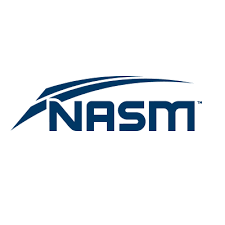
Product Highlights
- No prerequisites to take this course
- Teaches you the sales process to grow your personal training business
- Developed in partnership with Net Profit Explosion
- Fully online self-paced course
- Includes 19 lecture videos and the OPT Model Sales Template
Pros & Cons
Pros
- Complete in as few as four weeks
- Fully online and self-paced
- Earn 1.0 NASM CEUs (10 hours)
- No prerequisites
Cons
- Only provides CEUs for NASM
- No hard copy textbook available
Bottom Line
The NASM Business Blueprint was developed with Net Profit Explosion (NPE), and is a great resource for trainers looking to master the sales process and grow their training business. Only NASM certified trainers can earn CEUs from the course, but even if you don't have a NASM certification, you'll still learn valuable sales and business lessons from the course content. The course includes online material that can be accessed for five years, including downloadable video lectures. According to NASM, the course can be completed in as little as four weeks, and provides a certificate of completion along with 1.0 NASM CEUs.
Becoming a certified personal trainer is only the first step in building your career. Once you’re certified, you still need to learn how to set up your business, manage your clients, sell your services, and build a career out of personal training.
Many trainers, myself included, have learned the hard way that simply having credentials won’t fill your client roster once you start working at a gym. You still need to learn how to grow and maintain your training business for years to come.
The National Academy of Sports Medicine (NASM) understands this, and the NASM Business Blueprint is a great option for trainers of any level who want to learn how to build a sustainable personal training career.
RELATED: NASM vs NCSA
The course was developed in partnership with Net Profit Explosion (NPE), a business that helps fitness entrepreneurs scale their training businesses. You’ll learn how to price your services for in-person or online training, navigate the sales process, scale your income, and more. Each section uses NPE’s proven frameworks that were designed to help fitness professionals scale and grow their training business.
No one on our team has completed the NASM Business Blueprint yet, but many of the GGR staff members have NASM credentials (including the NASM CPT) and have enjoyed their experience with the NASM learning platform.
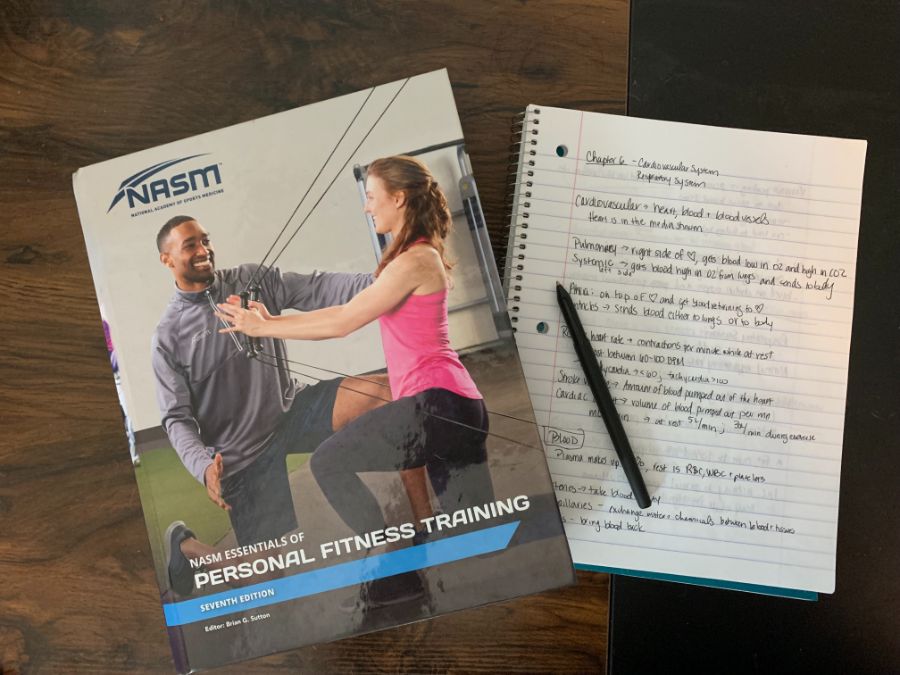
It’s worth noting that the NASM Business Blueprint only provides CEUs for NASM certifications, but the content will help personal trainers with any certification grow their business.
The NASM Business Blueprint earned a 3.14/5 rating according to our testing methods. We gave it a 5 for value and course length, but only a 2 for accreditation, and this specific NASM course isn’t accredited.
| Price | $499 |
| Course length | Unlimited |
| Expected hours per week | As many as you need |
| Learning platform | Online course |
| Exam format | 50 multiple choice questions |
| CEU value | 1.0 NASM |
| Recertification requirements | N/A |
Best Sports Performance Continuing Education Course: ISSA Performance Enhancement Specialist
Good for: Trainers looking to work with athletes
Best for Sports Performance
ISSA Performance Enhancement Specialist
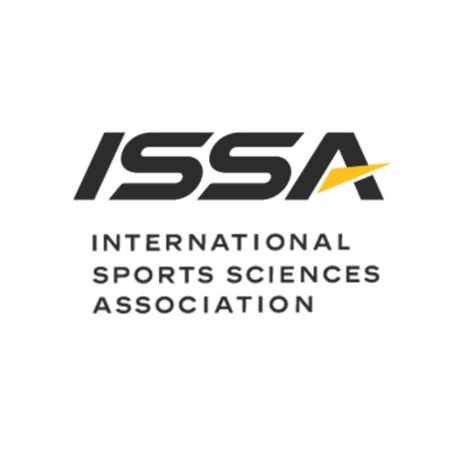
Product Highlights
- Online Performance Enhancement Specialization Course
- Online coursework, access to student resources, open-book final exam
- No prerequisites
- Monthly payment plan available
Pros & Cons
Pros
- Online certification
- Proctored or online exam available
- Study support team available
- Course material included in price
Cons
- No hard copy textbook available
- Open-book final exam with no accreditation
Bottom Line
The International Sports Science Association Performance Enhancement Specialist is a great option for personal trainers who want to learn more about sports performance training. You'll learn how to help athletes improve speed, agility, and coordination, while balancing the demands of sports practice and training to minimize injury risk. The course includes an online book and study materials, as well as access to a student forum and on-staff professors. The final exam is an open-book exam taken at home, and the certification doesn't expire.
Many personal trainers come from athletic backgrounds and want to work with athletes, who often require a more specialized approach to training compared to regular fitness clients. While typical personal training clients may only exercise in the gym with you, athletes are generally involved in weekly practice and competition for their sport, and trainers need to learn how to balance strength training and sports practice, without risking overtraining.
If you’re interested in learning how to help athletes of all levels improve their speed, agility, and sports performance, the ISSA Performance Enhancement Specialist is an option worth considering. While the CSCS is often considered the gold standard for sports performance, it’s certainly not the only credential that helps you train athletes, and this one from ISSA is a strong alternative.
The ISSA Performance Enhancement Specialist will teach you how to help athletes improve their speed, agility, and coordination while balancing training demands with sports activities to avoid overtraining and minimize injury risk.
You’ll learn how to help athletes improve their biomechanics, agility, and motor control, and the course even includes chapters on sports nutrition, sports psychology, and dietary supplements.
While this online course is self-guided, all ISSA students are given unlimited access to the on-staff professors who can help answer any questions you may have. You’ll take individual chapter quizzes, along with an open-book final exam to earn your certification.

We haven’t completed the ISSA Performance Enhancement Specialist certification yet, but we’ve reviewed several other ISSA certifications, like the ISSA Nutrition Certification, and both have scored higher than four stars.
The ISSA Performance Enhancement Specialist certification earned a 3.28/5 rating. The value and course length both earned 5/5 ratings, but no accreditation or CEU requirements brought the total score down a little bit.
If you are looking to get into sports performance and have a bachelor’s degree of any kind, the NSCA-CSCS is likely the best option, but if you don’t have the required degree, this is a close second.
| Price | $639.20 |
| Course length | Unlimited |
| Expected hours per week | As many as you need |
| Learning platform | Online textbook, study guide, workbook, student forum, chapter quizzes, practice exams, and ISSA professors |
| Exam format | Online, open-book final exam |
| CEU value | 20 ISSA |
| Recertification requirements | N/A |
Best Nutrition Continuing Education Course: Precision Nutrition Level 1 Certification
Good for: Trainers who want to help their clients with nutrition in addition to an exercise program
Best Nutrition Course
Precision Nutrition Certification
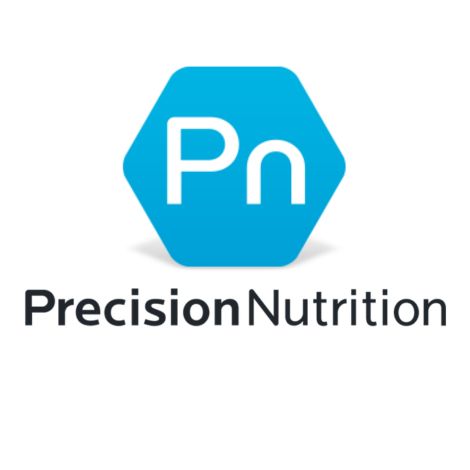
Product Highlights
- Nutrition coaching certification
- Over 150,000 industry professional certified
- Used in more than 50 countries
- High-rated and recommended
- No prerequisites required
Pros & Cons
Pros
- Study at your own pace
- Potential to earn CEUs
- Highly regarded certification
Cons
- Limited spots during enrollment periods
- Not NCCA-accredited
- No big final exam
Bottom Line
The Precision Nutrition Certification (specifically the PN Level 1 certification) is a well-known and well-liked nutrition coaching program for fitness industry professionals. Enrollment is limited and not open all year long. Once admitted, you’ll have the ability to go at your own pace or follow along with the 20-week course for live discussions and chapter reviews.
While understanding how to train clients is important, nutrition plays an equally important role when helping your clients improve their health, especially if the goal is weight loss.
Most certifications have a few chapters on the basics of nutrition, but if you’re going to be giving nutrition advice, some sort of nutrition course should be one of the first continuing education courses you choose.
The Precision Nutrition (PN) Level 1 Certification is one of the most well-known nutrition credentials you can earn, and for good reason. The course provides a very thorough explanation of nutrition science and human physiology, and also teaches you how to use habits and behavior change to help your clients.
Nicole Davis, senior editor at Garage Gym Reviews, and a CPT, PN1-NC, said: “As a personal trainer, the PN Level 1 course was a very useful tool to have when coaching my clients, and I know that nutrition is one of the most important things to address when helping clients achieve results. The science-based, yet practical coaching knowledge I learned from PN made me a better coach.”

You’ll learn the PN approach to coaching clients of any level, from complete beginners to advanced clients. Each chapter includes real-life case studies, so you’ll learn how to apply the PN coaching principles in the real world.
Nearly every personal trainer will share nutrition advice with their clients at some point, so the Precision Nutrition Level 1 certification is a great choice for any type of health and fitness professional.
You’ll see that Precision Nutrition only earned 3 out of 5 stars. While we scored the content and study options very highly, we had to take away points due to the lack of a final exam, ongoing education requirements, and no prerequisites.
Check out my full Precision Nutrition Certification review for all the ins and outs.
| Price | Around $1,400 MSRP |
| Course length | Unlimited |
| Expected hours per week | As many as you need |
| Learning platform | Self-guided through textbooks and workbooks, along with online study materials. |
| Exam format | Each chapter has a 10-question multiple choice quiz, with no final exam |
| CEU value | 2.0 NSCA, 1.9 NASM, 19 ACSM, 6.0 ACE |
| Recertification requirements | You need to pass a 50-question exam every two years to renew your certification |
Best Affordable Continuing Education Course: MASS Research Review
Good for: Fitness trainers who want affordable CEUs and research reviews every month
Best Affordable Option
MASS Research Review

Product Highlights
- Monthly research reviews and articles from a team of experts
- Covers a variety of strength, physique, and nutrition topics
- $29 per month, with annual and lifetime memberships available
- CEUs/CECs are available by passing a multiple-choice exam covering past issues
- No certification, but monthly education with CEUs
Pros & Cons
Pros
- Monthly research reviews and articles covering strength and nutrition science
- Affordable pricing
- CEUs/CECs with the major organizations included with your membership
Cons
- No certification awarded
- The CEU/CEC exams can be challenging
Bottom Line
The Making Application of Science Simple (MASS) Research Review is a fantastic way to stay updated on current research in the fields of strength, physique change, and nutrition. Each month, you'll receive a detailed PDF that interprets the latest research, helping you apply it to your coaching practice. Active members can also earn CEUs/CECs by completing multiple choice exams that cover the content in issues of MASS Research Review. The membership only costs $29/month, and there are discounted options for annual or lifetime memberships.
If you’ve ever tried to read a research paper, you know it can feel very daunting. Not only is the text often very clinical, but without a background in statistics, and training in how to interpret research papers, you may have a difficult time understanding what to do with the information in a given study.
Thankfully, MASS Research Review is here to make things a whole lot easier, while giving you CEUs each month that you’re a member.
MASS stands for Making Application of Science Simple, and the monthly newsletter is designed for trainers, coaches, and fitness enthusiasts who want to stay up to date on all the latest strength, physique, and nutrition research. As a fitness coach myself, MASS is one of my favorite resources. It gives me an easy way to stay up to date with the current scientific research in my field, especially when certifications haven’t been updated recently and are a bit behind the current research.
Each issue is written and reviewed by Eric Helms, Ph.D., CSCS, Eric Trexler, PhD., CSCS*D, CISSN, and Michael Zourdos, PhD., CSCS, and Lauren Colenso-Semple M.S., CSCS. They’re all experts in reading and analyzing scientific research, and do an excellent job interpreting the study, simplifying the information, and telling you exactly how to apply it to the real world.
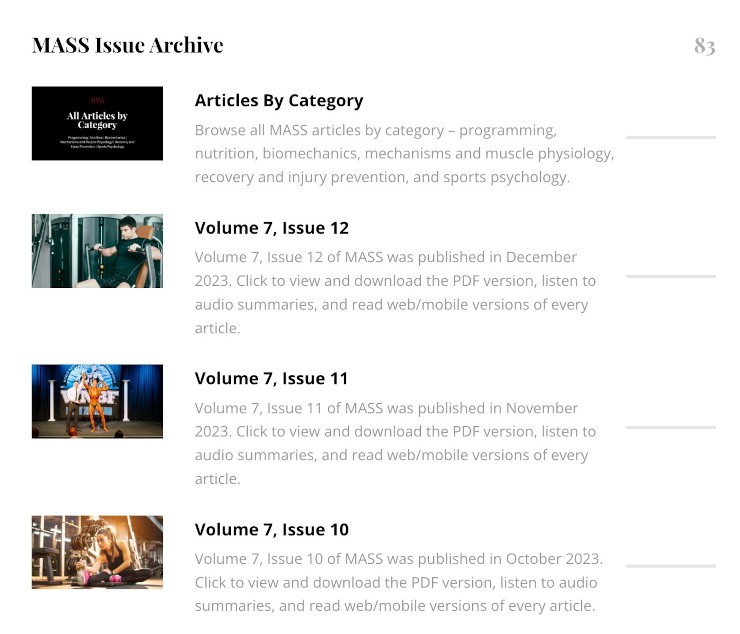
Each month, you’ll receive a new PDF of MASS, which includes detailed articles, video presentations, and audio interviews. When you join, you’ll also receive access to every single past issue of MASS, which has been running for six years and counting, and you can browse past issues by topic to find specific articles or studies.
As an active member, you can take free quizzes to earn CEUs/CECs for ACE, ACSM, NASM, and NSCA credentials. Each quiz ranges from 60 to 80 questions and will cover the material in multiple past editions of MASS.
The MASS Research Review earned a 4/5 rating from us. The value is unbeatable, especially for how many CEUs it provides, but since this isn’t an accredited course and you don’t earn any certifications, just CEUs, we couldn’t give it a five-star rating.
MASS costs $29 per month, $299 for the annual plan, or $999 for lifetime access. Students who can verify current enrollment can subscribe for only $15 per month.
| Price | $29 monthly, $299 annual, $999 lifetime |
| Course length | Monthly edition and quiz |
| Expected hours per week | 2-4 hours |
| Learning platform | Monthly PDF, articles, video, audio content |
| Exam format | 60-80-question quiz covering past editions of MASS |
| CEU value | 3.8 NSCA, 1.9 NASM, 18 ACSM, 1.8 ACE |
| Recertification requirements | N/A |
Best Behavior Change Continuing Education Course: ACE Behavior Change Specialist
Good for: Trainers who want to help clients with the mental side of changing their habits
Best Behavior Change Course
ACE Behavior Change Specialist
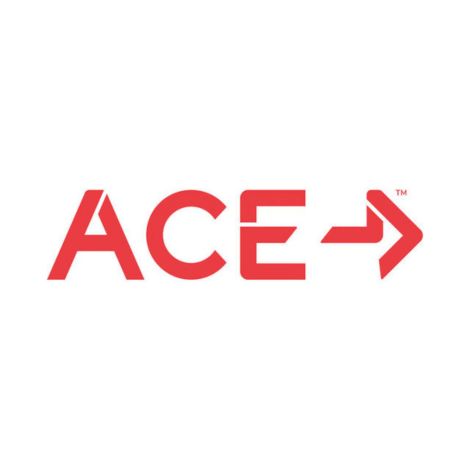
Product Highlights
- Learn to help clients identify and change limiting behaviors
- Content is developed by an impressive team of experts, including the founder of the Tiny Habits program and one of the co-founders of Motivational Interviewing
- Self-guided course with online materials and an optional hard copy of the textbook
- Must have an NCCA-accredited certification to be recognized as an ACE Behavior Change Specialist
- $399 for digital course, $479 to receive hard copy, both with monthly payment options
Pros & Cons
Pros
- Teaches you about behavior psychology
- Developed by an impressive team of experts
- Online course with optional textbook
Cons
- Must have an NCCA-accredited certification to be recognized as an ACE Behavior Change Specialist
- Self-guided course with no group or individual support
Bottom Line
The American Council on Exercise Behavior Change Specialist Certification is a great course for trainers who want to help clients make lifestyle changes. While you may see your clients in the gym, what they do the rest of the time is equally important, and this certification will teach how to help clients identify and change limiting behaviors. There are no prerequisites to complete the course, but you'll need an NCCA-accredited certification to be recognized as a Behavior Change Specialist by ACE.
Understanding how to train someone is important, but you also need to get your clients to buy into the process and change their lifestyle throughout the rest of the week.
Even if you train someone three or four times per week, they’re still spending the majority of their time away from you, and the choices they make in their own time are going to have a large impact on their overall health and well-being. If your clients’ habits are holding them back from reaching their full potential, they’re going to have a difficult time reaching their goals.
If you’ve ever struggled to help clients build new habits, the ACE Behavior Change Specialist is a valuable course to help you understand human behavior, and how to help your clients make a lasting change in their lives.
We haven’t taken the Behavior Change Specialist Certification, but an ACE Certified Personal Trainer on the GGR team reviewed the ACE Personal Training Certification and gave it a 4.25 score.
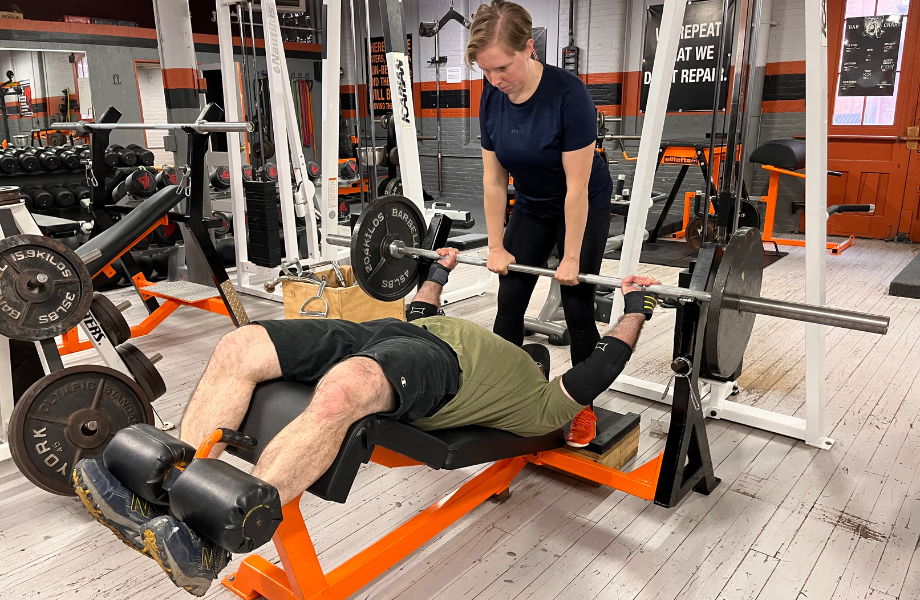
The Behavior Change Specialist program is led by a very impressive team of experts, including a physician, a board-certified health and wellness coach, a licensed therapist, a New York Times best-selling author, the founder of the Tiny Habits program, and one of the founders of motivational interviewing.
You’ll learn how to work with all sorts of clients with different goals and backgrounds, helping them identify their limiting behaviors and habits, and work together to build new ones.
Understanding how to coach your clients toward lasting change will truly set you apart from personal trainers who only know how to push someone through a workout in the gym, and understanding behavior change psychology is a valuable skill that will serve you in many areas of life.
Anyone can complete the course, but to be recognized as an official ACE Behavior Change Specialist, you need to have an NCCA-accredited certification.
The course earned a 5-star rating for value and course length, but only one star for continuing education as there are no CEU requirements to maintain the certification.
| Price | $399-$479 |
| Course length | Unlimited |
| Expected hours per week | As many as you need |
| Learning platform | Textbook, podcast, videos, quizzes |
| Exam format | Individual chapter exams and a comprehensive final exam |
| CEU value | 2.0 NSCA, 1.9 NASM, 25 ACSM, 2.5 ACE |
| Recertification requirements | N/A |
Best Corrective Exercise Continuing Education Course: TBMM Corrective Exercise Specialist
Good for: Trainers who want to help clients improve their form and mechanics to reduce pain and improve exercise results
Best Corrective Exercise Course
TBMM Corrective Exercise Specialist Certification
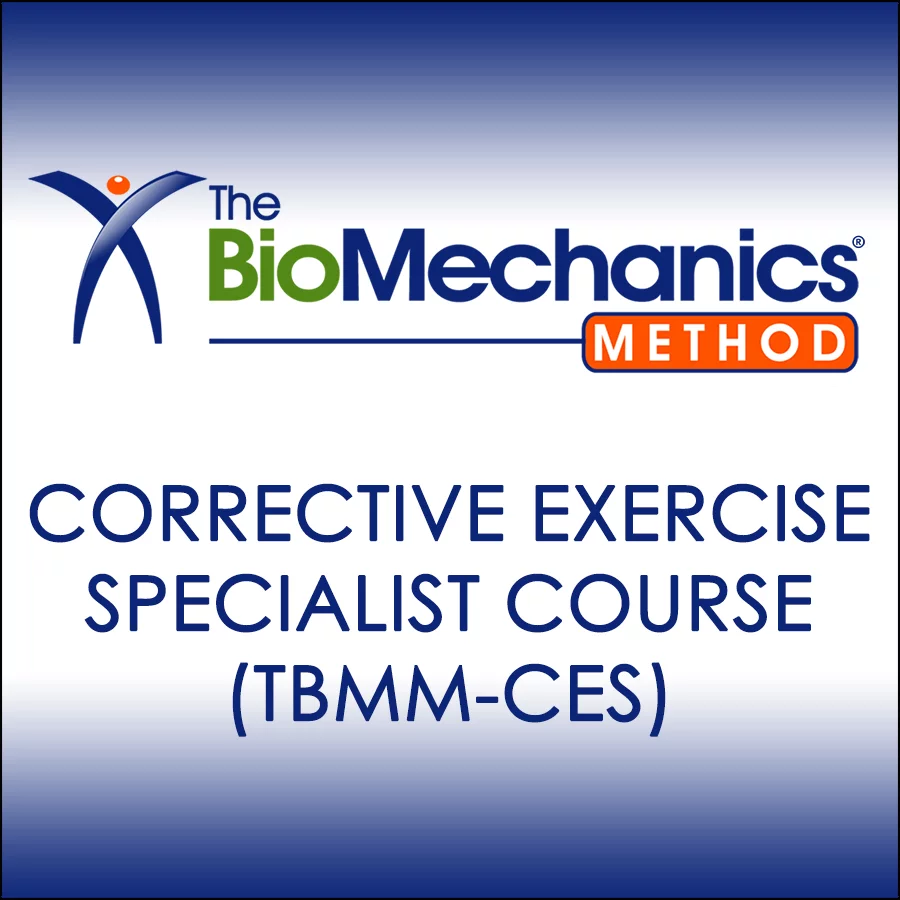
Product Highlights
- Understand biomechanics, movement patterns, and corrective exercise
- Teaches you how to help clients restore pain-free movement and proper posture
- Learn how to use corrective exercise techniques like self-myofascial release, stretching, and strengthening
- Comprehensive and detailed exercise library to learn how to properly perform movements
- Individual module exams instead of a final exam
Pros & Cons
Pros
- Learn how to identify and correct muscular imbalances
- Detailed instructions to adapt exercises to client needs
- Detailed video library
Cons
- No in-person instruction even the course teaches hand-on assessments
- Expensive
- No NCCA accreditation
Bottom Line
The BioMechanics Method Corrective Exercise Specialist Certification is a valuable resource for nearly any type of fitness professional. You'll learn how to perform assessments to find imbalances, how to correct posture and movement patterns, and understand how to help your clients minimize chronic pain. There is no in-person instruction though the course promises you'll learn hands-on assessments, so you'll need to practice carefully. The entire course is online, with a hard copy of the textbook available.
If you’re a personal trainer working with the general population, there’s a good chance you’re going to come across clients who have difficulty with exercise, or chronic aches and pains.
Personal trainers can’t diagnose injuries or treat any chronic conditions, but they can certainly help their clients understand proper posture and exercise technique, and address any muscular imbalance.
To learn how to do this, you need special training, which is where The BioMechanics Method Corrective Exercise Specialist (CES) certification comes in. The certification will teach fitness professionals how to perform musculoskeletal assessments, understand anatomy and movement patterns, address imbalances, and help restore comfortable, pain-free movement to clients.
RELATED: Hip Flexor Exercises to Improve Mobility and Relieve Pain
The entire course is completed online, and you’ll receive a digital or hard copy of a textbook, video lessons, and lifetime access to the course materials for review.
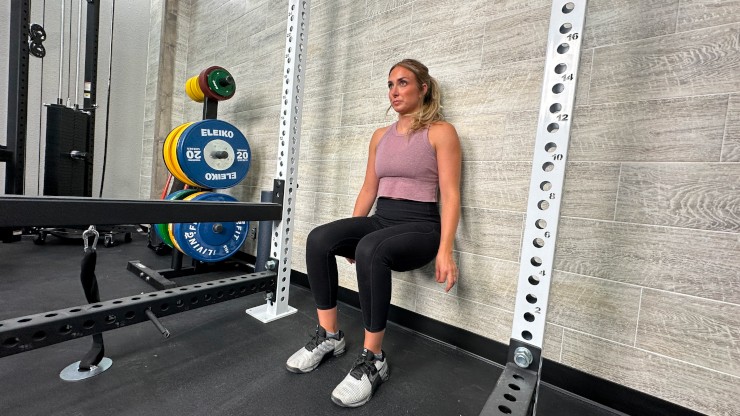
One concern is that the course advertises that you’ll learn to perform hands-on assessments with your clients, but you’ll learn this by watching videos, rather than practicing in real life with professional supervision. Getting good at manual assessments requires practice, and with an online course, there’s no one checking to make sure you’re doing things correctly, so you may be building incorrect habits without realizing it.
Our team hasn’t completed any courses from The BioMechanics Method, but the Corrective Exercise Course is recommended by ACE, a highly-respected organization.
Based on our testing methodology, the TBMM Corrective Exercise Course earned a 3.38/5 star rating. The value, course length, and study options scored highly, but we had to dock points for its lack of accreditation and no CEU requirements.
| Price | $749-$829 |
| Course length | Unlimited |
| Expected hours per week | As many as you need |
| Learning platform | Online course with 5 modules, optional hard copy of textbook |
| Exam format | Individual module exams with unlimited retakes |
| CEU value | 2.0 NSCA, 1.9 NASM, 80 ACSM, 8.0 ACE |
| Recertification requirements | N/A |
Best Advanced Continuing Education Course: ACSM Certified Exercise Physiologist
Good for: Trainers looking to work in clinical settings
Best Advanced Course
ACSM Certified Exercise Physiologist Course
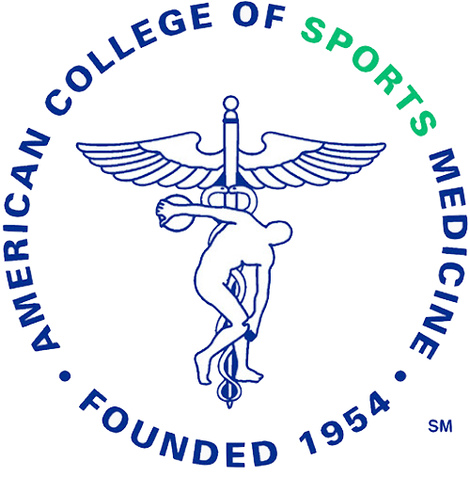
Product Highlights
- Advanced certification for trainers who want to work in clinical settings
- You’ll learn how to work with a variety of populations with various treated medical conditions
- Teaches how to provide a variety of comprehensive health and fitness assessments
- Requires a bachelor’s degree in a related field
- CECs and CPR/AED certification required for renewal
Pros & Cons
Pros
- Advanced credential that will help you work with a variety of populations
- You'll be able to collaborate with healthcare providers
- Strict prerequisites make this a very respected certification
Cons
- You need a Bachelor's Degree in Exercise Science, Exercise Physiology, or Kinesiology
- Final exam can be challenging
Bottom Line
The American College of Sports Medicine Certified Exercise Physiologist is a great course for anyone who wants to work in clinical settings. You'll learn how to work with clients who have a variety of conditions, including cardiovascular disease, osteoporosis, and diabetes. You'll need a bachelor's degree in a related field, and current CPR/AED to be qualified.
While most personal trainers find themselves working in gyms, private studios, or group fitness settings, some trainers may prefer to pursue a more clinical route. This could involve working in hospitals, physical therapy clinics, cardiac rehabilitation centers, or other facilities where you’re training clients with medical conditions.
If this is the area you want to focus on, the American College of Sports Medicine Certified Exercise Physiologist (ACSM-EP) is a great option.
You’ll learn how to conduct proper health and fitness assessments, including various ways to measure blood pressure, cardiovascular fitness, and body composition. You’ll also learn appropriate program design for special populations, including children, older adults, and pregnant women.
The course also teaches you how to work closely with healthcare providers who oversee clients with different forms of cardiovascular disease, diabetes, various injuries, osteoporosis, and other conditions. You still won’t be able to diagnose or treat any medical conditions, but you’ll learn to work closely with those who can.
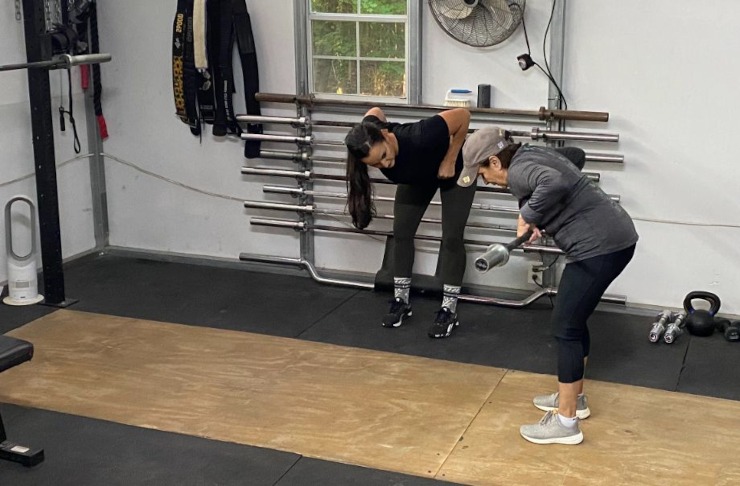
Even if you don’t plan to specialize in helping those with medical conditions, this advanced certification will make you a valuable resource in your local gym, and you may be able to get client referrals from physicians in your network who trust your knowledge and training.
Because this is an advanced credential, you need to have a minimum of a Bachelor’s
Degree in Exercise Science, Exercise Physiology, or Kinesiology. There are a variety of ACSM textbooks you’ll need to study, and you can also purchase an optional prep course, which includes a voucher for your final exam, to help you prepare.
We haven’t taken this course, but the ACSM is highly regarded in clinical settings. When I went through my Exercise Science degree, our exercise physiology course used ACSM textbooks, and many of the professionals in the local cardiac rehab centers and hospitals were ACSM certified.
The ACSM-EP Course earned a 3.86/5 rating. We gave it a high score for the final exam, strict prerequisites, and value.
| Price | $636 |
| Course length | Unlimited |
| Expected hours per week | As many as you need |
| Learning platform | ACSM resource books, optional prep course |
| Exam format | 220 multiple-choice questions (broken into 2 sections) |
| CEU value | 15 ACSM |
| Recertification requirements | Recertify every 3 years, with a renewed CPR/AED certification and at least 60 CECs |
Other Continuing Education Courses We Researched
While the courses we chose represent some of the best industry, there’s no shortage of options to choose from if you’re looking for something else. Many of the major organizations like NASM, ACE, and ISSA offer many different options for CEUs, so whatever you want to learn about, there’s probably a continuing education course for you.
Here are a few others you may wish to consider.
NASM Certified Nutrition Coach: If you don’t like the Precision Nutrition approach, or want a nutrition certification that has higher testing standards and a final exam, we gave the NASM Certified Nutrition Coach program a four-star rating.
NASM Performance Enhancement Specialist: Similar to the ISSA Performance Enhancement Specialist, the NASM PES certification is a great choice for those looking to get into the world of sports performance.
ACE Senior Fitness Specialist: ACE is one of the most reputable companies in the fitness industry, and the ACE Senior Fitness Specialist program is a good choice for those who tend to work with older populations.
AFAA Group Fitness Certification: While many personal trainers prefer one-on-one or small group training, some may want to become group fitness instructors. If so, the AFAA Group Fitness Certification is a good option to get certified in group instruction.
USA Weightlifting Certification: If you’re going to be coaching clients on Olympic lifts, this is a great certification that includes hands-on coaching to master Olympic lifts. GGR team member Caine Wilkes, an experienced Olympic weightlifter, gave the USA Weightlifting Certification a 3.5 out of 5 rating.
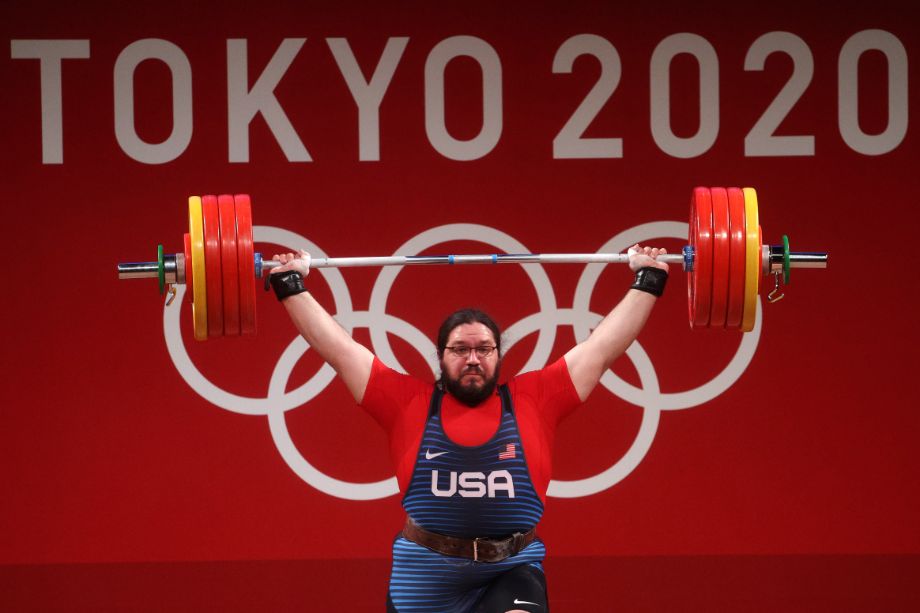
How We Picked and Tested Continuing Education Courses
When looking for continuing education courses to include, our testers considered a variety of factors, including cost, credentials, and the area of specialization.
Several members of the GGR team are personal trainers who’ve taken multiple continuing education courses over the years, so we have hands-on experience with many of the companies in this list, even if we haven’t taken all of the courses ourselves.
I also conducted extensive research into each of the courses, looking at the content, exams, prerequisites, study materials, instructors, and what sort of clients the course would allow you to work with.
As someone who spent six years working in various gym settings, I’ve worked with hundreds of different trainers over the years, and I’ve seen the different areas people choose to specialize in with their clients. I used this experience to choose the most useful courses to help personal trainers find the best area to specialize in.
Finally, I graded each course using the following criteria:
- Price
- Course Length
- Accreditation
- Continuing education requirements
- Prerequisites
- Study options
- Final assessment
Buying Guide: What to Look for in a Continuing Education Course
With the plethora of continuing education courses out there, it’s important that you choose one with a discerning eye. Here’s how we recommend evaluating each option.
Cost
Of all the factors to consider, cost is one of the most important. Every personal trainer has a different number of clients and a different income, and you shouldn’t choose a cert that’s going to cause financial stress.
CEUs can have a large price range, from a low monthly fee of $29 to over $1,400 for the entire certification. If you’re looking at one of the more expensive options and the cost is a factor, many companies offer interest-free monthly payments to help you get started.
When rating the course, I used the following scale we’ve developed for fitness certifications:
- 1 = More than $3,000
- 2 = $2,000 to $3,000
- 3 = $1,000 to $2,000
- 4 = $800 to $1,000
- 5 = Less than $800
Prerequisites
Before signing up for a continuing education course, be sure to check the prerequisites. Some of the options on this list, like MASS Research Review and Precision Nutrition, have no prerequisites at all and would be appropriate for anyone. Some of the other options, like the NSCA-CSCS or ACSM Certified Exercise Physiologist, have stricter prerequisites, including other NCCA-accredited certifications, or even a bachelor’s degree in a related field.
Course Length
Many CEUs don’t have time limits, but some will have a strict time frame for taking the exam, like the CSCS. If you want to take the course at your own pace, make sure you choose one that doesn’t have any type of time limit.
Course Material
With continuing education, generally the material is going to be an in-depth look at one specific topic, like sports performance or nutrition. As long as the main topic is something you’re interested in, you should be good to go, but it never hurts to take a look at the course outline, and make sure it contains everything you’re looking to learn.

Learning Format
Do you prefer to study at home, or do you like hands-on learning? Most courses use a combination of physical or digital textbooks, study guides, and other resources like videos, webinars, or audio lectures. Make sure the course matches the type of learning style you prefer. Some courses are online only, some have instructors you can access, and some even offer live prep classes, so you shouldn’t have any trouble finding an option that matches your preferred learning style.
Exam Format
Check the type of exam that will be used to determine whether you pass or fail. Many CEUs offer online, open-book exams, but some require proctored testing in person, and some don’t have final exams at all.
Generally speaking, courses with proctored exams tend to have stricter requirements and will be more respected than those with open-book exams, though this is less important with CEUs compared to full personal training certifications.
Accreditation
Like the exam format, accreditation is generally less important with CEUs, which typically are add-ons to a primary personal training certification. That said, if you are looking to specialize in a specific population that would require special training, an accredited program is probably a good choice to give you credibility.
Recertification Requirements
Does the CEU course you’re going to take require its own CEUs? Many of the add-on certifications, like Precision Nutrition or the NASM Business Blueprint, have minimal requirements to recertify. Others that could act as a standalone credential, like the NSCA-CSCS or ACSM-CEP, can have stricter requirements and require CEUs every two to three years.
Continuing Education Course FAQs
What is the most widely accepted continuing education course?
If you’re taking CEUs to renew your personal training certification, it shouldn’t really matter which you choose as long as your certification accepts the course you’ve chosen.
For the courses on our list that could replace a personal training certification, like the NSCA-CSCS or ACSM-CEP, both are from very well-respected certifying organizations.
How can fitness professionals earn CEUs?
Fitness professionals and personal trainers can earn CEUs by continuing to invest in their own education and completing courses that improve their skills and knowledge. These courses can cover a wide range of topics, including nutrition, corrective exercise, behavior change, and even business development. Fitness professionals can choose an area they wish to learn more about and find a continuing education course with the appropriate content for their goals.
Which fitness certification makes the most money?
In most commercial gyms, pay is based on years of experience, or the total amount of training sessions you’re completing in a week. If you train privately, you’ll be running your own business and can set your own rate. The only exception I’ve seen is certain commercial gyms have a sliding pay scale, and you’ll earn a larger commission per session if you have a bachelor’s degree or master’s degree in Exercise Science, or if you’ve completed a course that requires a bachelor’s degree.
When the pay scale is based on credentials, this generally refers to full certifications, rather than specialized CEUs.
How many CEUs do I need to renew my NASM certification?
NASM personal trainers are required to complete 2.0 CEUs every two years, including a mandatory 0.1 CEU from a renewed CPR/AED certification.
Further reading

Read our Magic Kitchen review for our thoughts on pricing, ingredients, and quality of the gluten-free food before trying this meal delivery service. Read more

Are you looking to go deeper on your squats while working with ankle mobility issues? The heel-elevated goblet squat may be just the thing for you. Read more

Are you looking for something fresh for your weekly arm workouts? Reverse curls may be what you need to keep the routine fresh and keep the gains coming! Read more

Wondering how to fix a Sole treadmill? We’ve got you covered in our comprehensive guide. Read more

